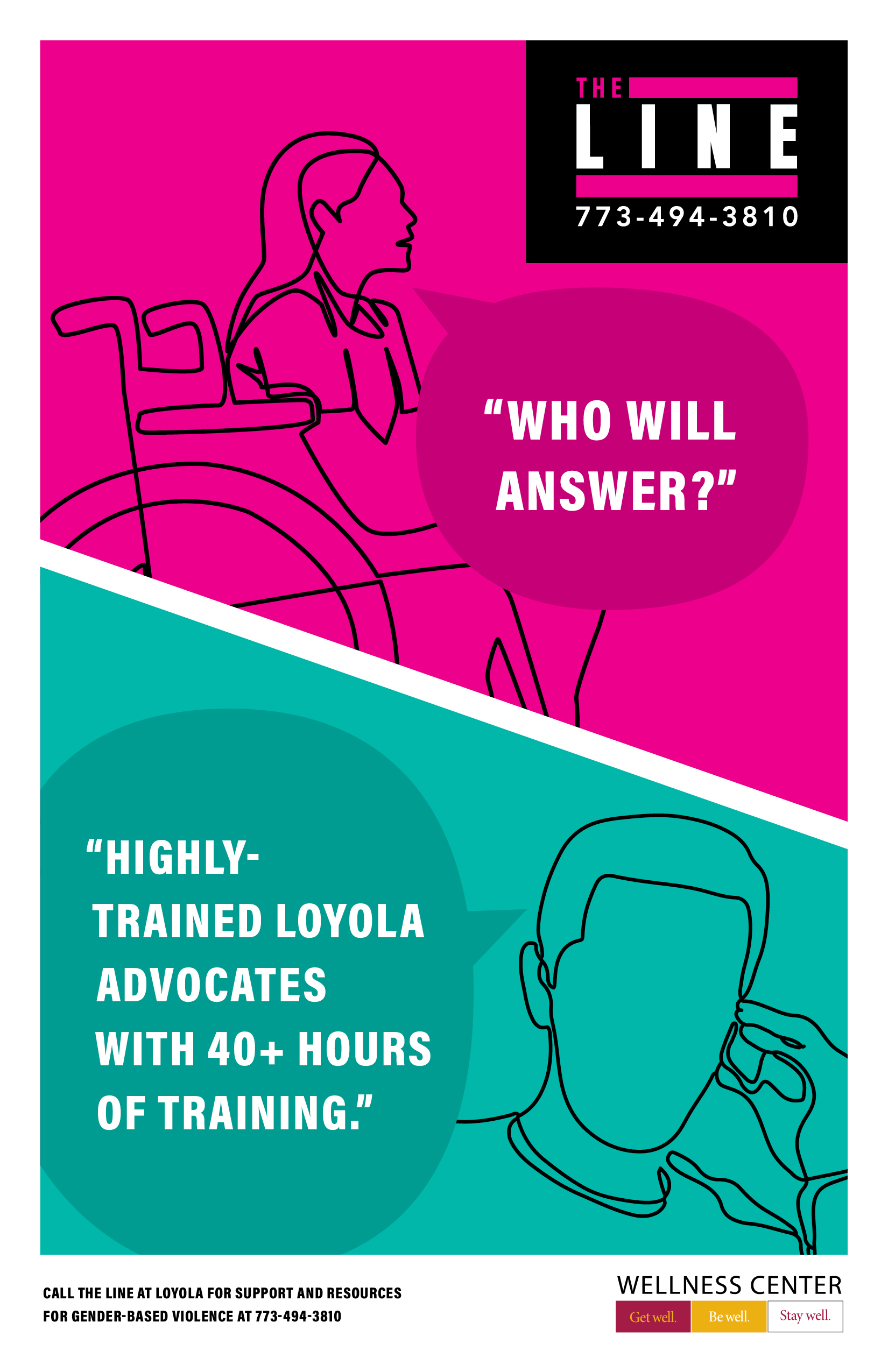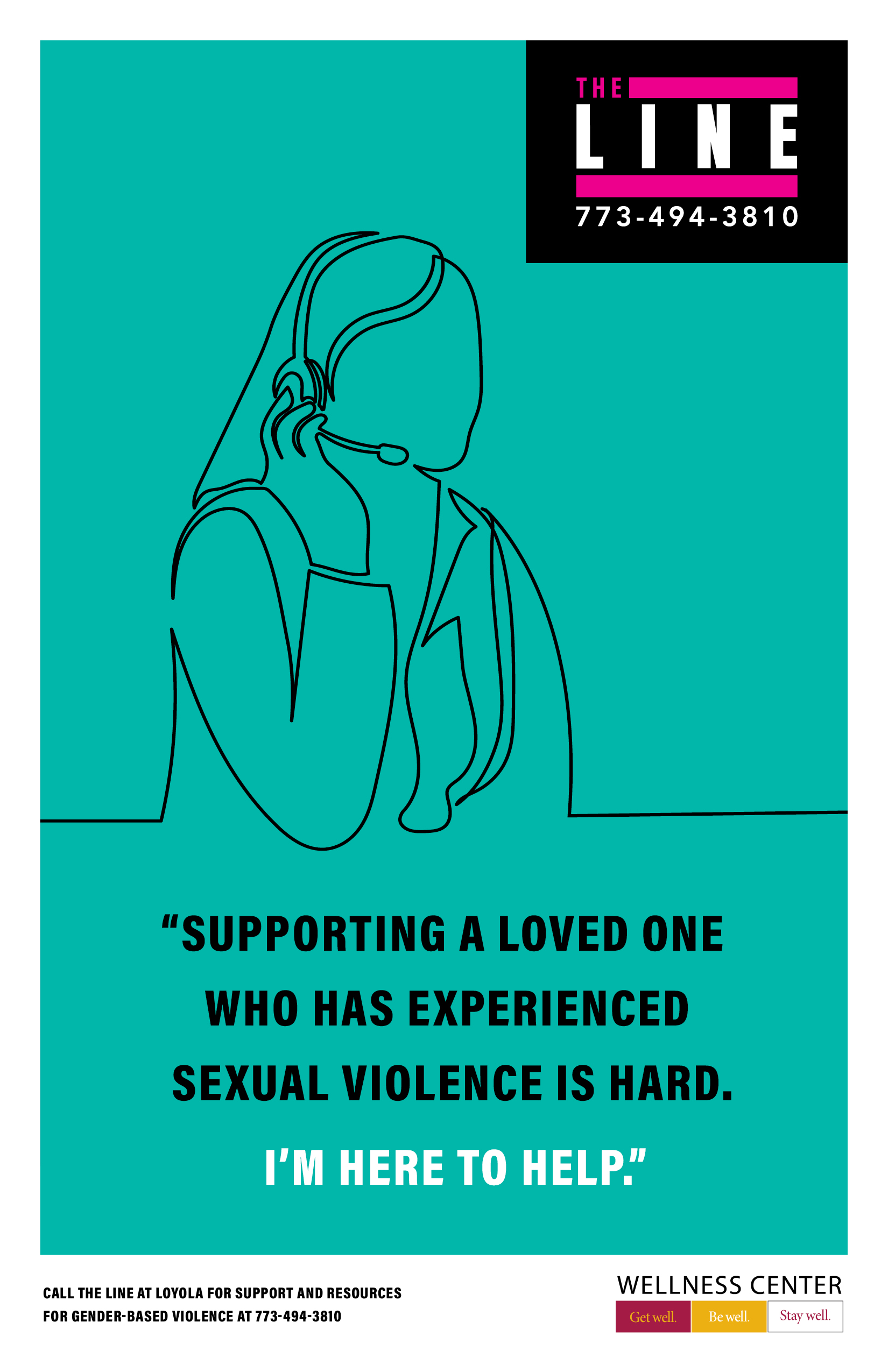Advocacy Line
If you've experienced sexual assault, dating/domestic violence, sexual harassment, sexual exploitation, or stalking and you are unsure what to do, have questions, or just need to talk - confidential, trained advocates are here to help.
What are advocacy services?
"Advocacy services" is a general term to describe a variety of services offered to survivors of gender-based violence. Trauma-informed, trained advocates in the Wellness Center are available to answer any questions that you may have, including how to report an incident of violence, what resources exist on- and off-campus, what Loyola's conduct process looks like, how to safety plan, and more. An advocate's role is to provide nonjudgmental, confidential support. Advocacy services are confidential, meaning that in speaking to a trained advocate, the advocate is not required to tell anyone else what has been shared. The exceptions to confidentiality include if someone discloses that they may harm themselves or others.
Who are the advocates?
Advocates at Loyola are professional staff members and trained volunteers in the Wellness Center who have completed over 40 hours of training to become a certified Sexual Assault Advocate in Illinois. An advocate's role is to provide nonjudgmental, confidential support to student survivors of gender-based violence. Advocates at Loyola are additionally trained to help students navigate options and services on campus.

How do I connect with an advocate?
The primary way to connect with an advocate is to call The Line at Loyola at 773-494-3810. The Line is open Monday-Friday during business hours and 24 hours on the weekend when classes are in session.
During most breaks (summer, spring, etc.), advocacy services are available Monday-Friday during business hours. The Line is typically closed on university holidays.
If The Line is closed and you would like to speak to someone right away, please call the Chicago Rape Crisis Hotline at 888-293-2080.

Who can request advocacy services?
Any Loyola community member can call The Line. Survivors can call on their own, or someone can call on their behalf. Co-survivors (friends, family members, partners, loved ones) can also reach out for support.

